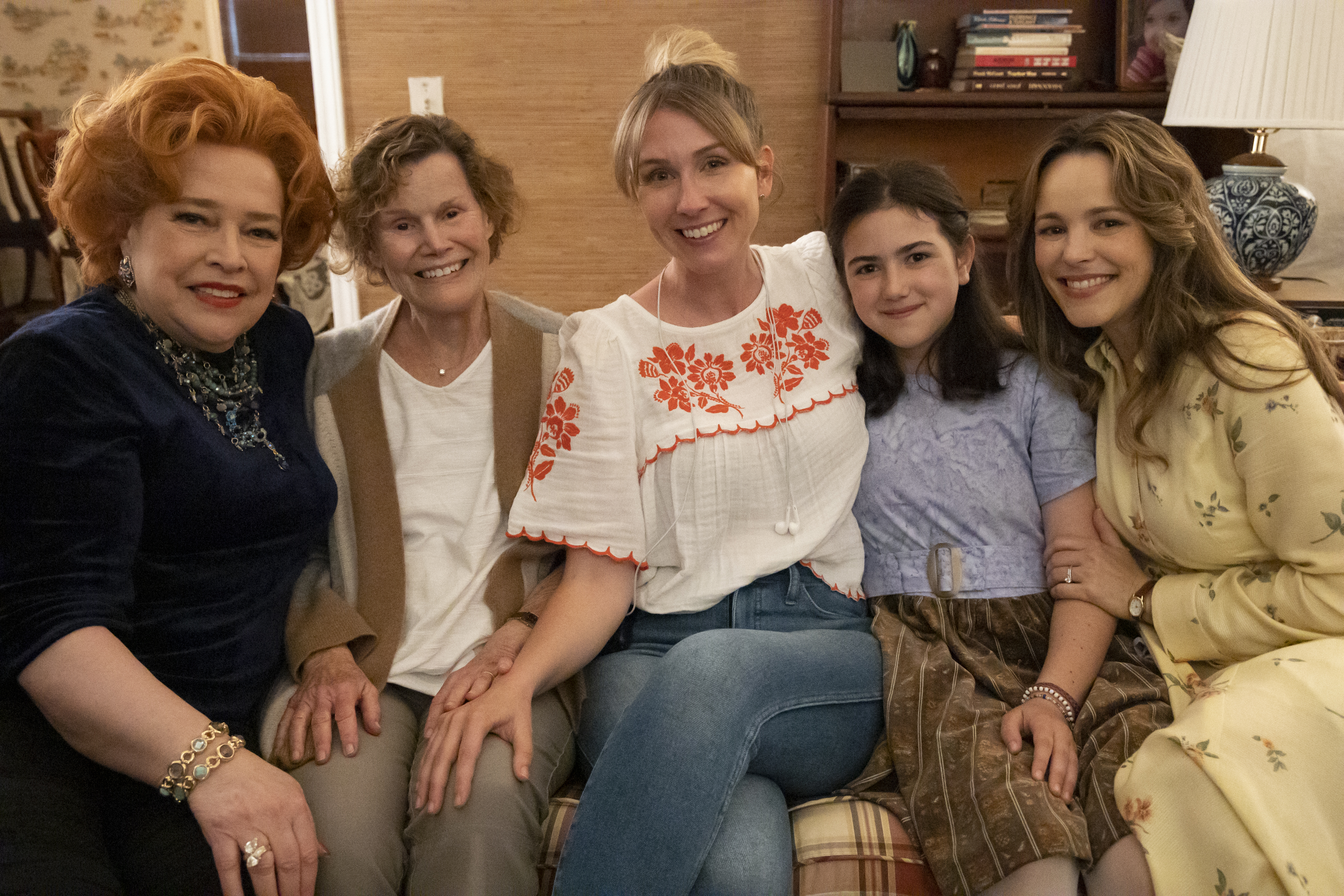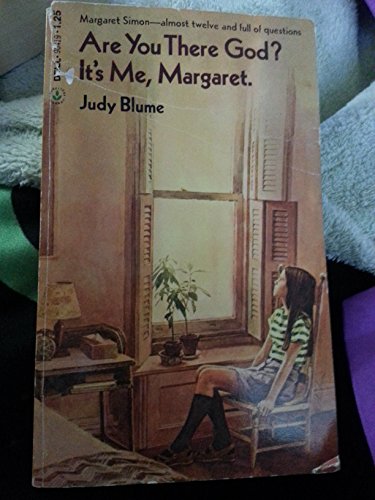Are You There God? It's Me, Margaret is a beloved Judy Blume book about an eleven/twelve-year-old girl who moved to New Jersey and is growing up. The book ends with her menstruating. The book is now over fifty years old with a bunch of covers (including blonde-haired ones). We have a film, which I did not see yet, but Rachel McAdams as the mom is a good vibe.
The film has received great reviews, including from the Freedom From Religion radio show, the woman co-host is sure to note her praying is just a device!* [Bonus "God" content below!]I found the book on the free book apparently some time back since when I was looking at my shelf, I found it. I re-read it (the small paperback version I have is around 150 pages).
I am not the intended audience but a good book can appeal to many people. I liked it. It was down to earth and felt honest. The book is through the eyes of the main character but we get a sense of some others through her eyes, including a know-it-all who is a lot of bluster and a fellow student who is not so pleased that she developed early. Here is the cover of my version with something of a "babysitter club" vibe:
[I'm leaving that hard break line in; I don't know why they sometimes pop up while I'm using this blog creator. The old version did not keep on doing that.]
Like all good books, it is not about one thing. For instance, her parents are a mixed-religion couple, which leads to a late story drama. They said she could choose her own religion (though the father is upset when she goes to the temple with her grandmother), but she notes later that there is a problem with that. It's hard to choose all on her own.
The mother's parents shunned her for marrying a Jew (this would be in the 1950s) and this aspect shows at an early stage in her career that Judy Blume was willing to deal with touchy topics. She continues to be subject to censorship. A recent case in that department was a Japanese author who was given a chance to have a wide release of her book, but Scholastic wanted her to remove an author's note about racism. She said "no."
Judy Blume has also written young adult and adult novels. Her Wifey nove (with a few racy parts) is famous for some adult readers (and maybe teens who checked mom's copy!). More recently, she wrote In the Unlikely Event, based on a true story she experienced about multiple plane crashes in the 1950s. I started to read it and it has some good storylines. But, I found it too long to enjoy. A shorter version would have been nice.
Judy Blume reportedly was concerned about agreeing to have her famous book filmed. But, she seems to have found the result fine. A lot of audience members agree.
They still come up and thank her.
ETA: To toss it in, I saw some of The Sky is Pink, a movie I found while looking for something else. It's an Indian film based on a true story involving a girl born with a genetic condition that led to her death (after at first it looked like she was healthy; her sister died as a baby) at an early age.
I only saw around the first half, but it was a good film, well-acted, and so forth. I avoided waiting around to watch her relapse and her parents' marriage severely being threatened in the process. We learn early on ("Yeah, I'm dead, get over it") what happened to her. So, I avoided that part.
The other issue was the too-small subtitles. I know my vision isn't the best, but come on with that stuff.
---
* The most recent show interviewed Bart Ehrman, a person they interviewed over the years. I read that book.
Ryan Burghe (professor and minister) was also interviewed by the hosts. He has two books analyzing religious beliefs through his statistical-based political scientist lens. I read The Nones about the rise of people (now around 30%) who basically chose "none of the above" as their religion.
Annie Gaylor (woman co-host, always an atheist; her husband Dan Barker was once a Christian minister) likes mentioning "the nones," partially it seems for the nuns/nones wordplay. Nonetheless, as Burghe notes, around twenty percent of them are not atheists and agnostics as such.
The little book (under 150 pages) is interesting, including summarizing how data is collected in religious belief surveys. The book is mostly social science related, but a few times the author expresses his minister side. He rather there not be so many "none"! The book's last chapter is written with his minister hat on. Guess he does mix them a bit.
The book notes when talking about this group that some do go to church, much more likely the "nothing in particulars" as compared to atheists and agnostics. The book doesn't talk about it, but Unitarian-Universalists are one religious organization that welcomes atheists. Jews also can be atheists or agnostics. Ethical societies have also looked at the structures of religious institutions (weekly meetings etc.) and patterned themselves after them.
The book ends with how his shrinking membership church (mainline Christians, moderates as compared to evangelicals, are bleeding numbers fast in recent years) started to donate food to local foods as an act of fellowship. Which is fine. But, his belief in God is not the only way nothing in particulars might wish to express their religious and spiritual beliefs.
Again, atheistic Unitarians serve as an example.



No comments:
Post a Comment
Thanks for your .02!